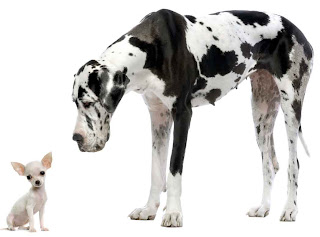'
Time to Eat the Dog?: The Real Guide to Sustainable Living' is a controversial book by New Zealand based scientists Robert Vale and Brenda Vale. The Vales' believe that if we are to examine all of our lifestyle choices and their environmental impacts then we must include our pets as part of the discussion. We know the impacts of the human food chain in regards to the environment but what about our pets? According to the Vales' research a medium sizes dog costs the earth twice that of a Toyota Land Cruiser driven 16,000km including the environmental cost of building the vehicle. Further research claims that it takes 2.07 acres of land to keep a medium sized dog fed. The Vales have also brought cats into the equation claiming a cat has the environmental impact of a Volkswagon golf. This is quite alarming when you consider that in 2004 the average Vietnamese citizen had an ecological footprint of only 1.88 acres.
The New Scientist, in a recent editorial entitle
d "Cute, Fluffy and Horribly Greedy", largely agreed with the Vales' findings, "In a world where scarce resources are already hogged by the rich, can we really justify keeping pets that take more than some people?"
Robert Vale says he was surprised when calculating quite how large the environmental impact was of some of our most popular pet species. "Of all the areas we researched for the book, the subject of pets was by far the biggest surprise for us. But all we are arguing in the book is that we should be making sensible, informed choices. For example, it's not really going to be that much of a problem if you have a big dog but also take the bus everywhere, never fly and live in a small home. It's when everyone starts to have a big car, big house, big family and a big dog that the problems start."

While many pet owners have taken this information as an attack on them personally I think it is quite the opposite. This information can only empower pet owners to make informed decisions. Perhaps when deciding to add a pet to your family a Great Dane is probably not the right choice instead consider a smaller breed such as a terrier. Owning a pet is not a right but instead it is a luxury and I think this is the mind set that needs to change.
Click
here to listen to Robert and Brenda Vale answering questions about their book on ABC radio.





